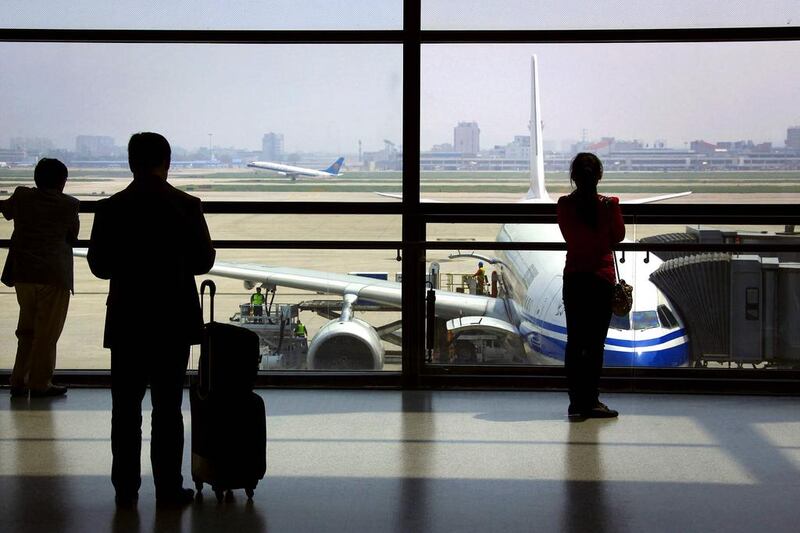China is poised to displace the United States as the world’s biggest business-travel market by 2016, aided by accelerating export growth and slowing inflation.
Last year, American business travelers spent US$1.20 for every dollar spent by the Chinese, down from $7.70 in 2000, according to a report released yesterday by the Global Business Travel Association (GBTA), which analysed travel spending in 75 countries for its study.
In China, the increasing pace of exports since the middle of last year, consumer prices running below government targets and nominal wage gains that support more spending and profit growth are contributing to an expansion in the market. That contrasts with the US, where economic growth has been “stubbornly low,” along with employment and wages, the GBTA said.
“China, along with the other Bric countries of Brazil, Russia and India, are leveraging their business travel expenditures into more economic opportunities,” said Michael McCormick, the GBTA executive director. “We expect to see this shift in business travel spending to continue.”
Abu Dhabi is positioning itself to attract more travelers from fast-growing China and will host the third Chinese Visitor Summit later this year.
Organised as a networking platform for travel industry professionals, the event is expected to bring 75 Chinese tour operators to meet local agencies for six days from August 23, split between Abu Dhabi and Dubai.
In the first four months, 45,760 Chinese guests checked in to the capital, up by 232 per cent from same period last year, according to Abu Dhabi Tourism and Culture Authority (TCA Abu Dhabi). And they stayed for 1.8 nights, a 104 per cent increase year-on-year.
The Chinese cosmetics company Nu Skin was largely responsible for the spike, as 16,500 sales agents descended on the emirate in April for a mass junket.
This month Etihad Airways said it would fly four times a week to Hong Kong from next year, adding its fourth destination in China, after Beijing, Chengdu and Shanghai. It will also be the seventh destination in North-east Asia.
Asia-Pacific is the largest regional business travel market, followed by Western Europe and the US, according to the GBTA study. The three regions accounted for 89 per cent, or $984 billion, of about $1.1 trillion in spending last year.
By 2018, Asia Pacific will gain another 5 per cent market share, with Western Europe and the US forecast to lose 2 per cent and 3 per cent, respectively.
Spending worldwide for business travel will climb 6.9 per cent this year to $1.18tn, according to the study. Growth will accelerate by an estimated 8.6 per cent next year and then slow in 2016 through 2018, the GBTA forecast showed.
Spending in Russia may fall more than 5 per cent this year, the GBTA said, amid safety concerns and the international sanctions imposed on the country, triggered by the crisis in Ukraine.
Since the GBTA began its study in 1998, the US has been the world’s largest business travel market, although it has not had the fastest expansion. While spending in China increased an average 16 per cent a year since 2000 to reach $225bn last year, in the US it rose 1.1 per cent annually to $274bn.
The projections have implications in areas as diverse as hotel construction and plane purchases by airlines, and if realised will add pressure on China’s already congested airspace, where flight delays run at about 25 per cent and only 20 per cent of available airspace is allotted to civil aviation.
China is expected to account for half of the increase in Asia's commercial aircraft fleet to 10,300 in 2020 from 6,000 at the end of last year, according to Ed Greenslet, who publishes The Airline Monitor. The US fleet will grow to just over 7,200 from 6,482 in the same period, he said.
The Asia-Pacific region is adding almost double the new hotel rooms in Europe, the Middle East and Africa, and about 30 per cent more than the US, Matthew Fry, a senior vice president at Starwood Hotels and Resorts Worldwide, said earlier this month. Many emerging markets have few globally branded hotels, and as these economies grow, demand for accommodation that meets international standards is climbing, he said.
* with Bloomberg News
Follow The National's Business section on Twitter





